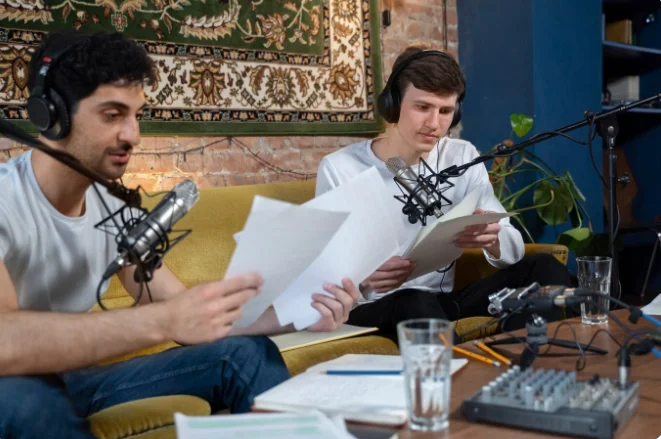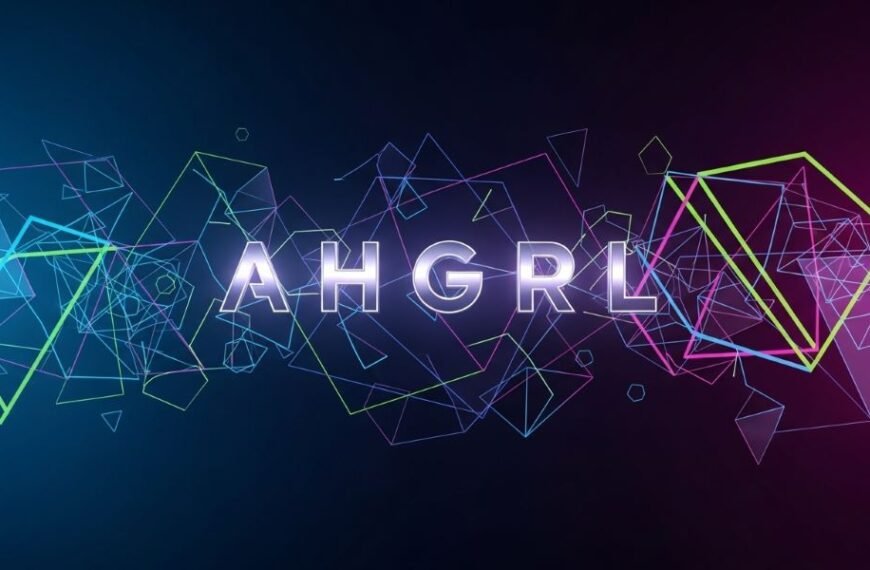So, you’ve been waiting and waiting, and you finally decided to start a podcast.
Whatever your motives are, increasing the branding awareness of your podcast, or you maybe have a passion you really want to share with the world, whatever your reason, 2025 is one of the best times to launch a podcast, and no, not because podcasting is on the rise. It’s because the tools are better, the audience is smarter, and you don’t need a studio that looks like Joe Rogan’s to make something worth listening to.
If you’re wondering how to start a podcast without getting lost in gear guides, SEO myths, or perfection paralysis, you’re in the right place. Let’s get into it.
1. Don’t Start With Equipment
This might sound backwards, but don’t go shopping yet.
Seriously, don’t Google “best podcast mic” just yet. If you’re just launching a podcast, your first priority isn’t having buttery sound quality, it’s having a clear why. Why are you making this podcast? Who is it for? What are they going to get from listening to it?
Once you’ve figured that out, you can move on to…
2. Choose a Format You’ll Actually Stick With
People overcomplicate this all the time. There’s no perfect format. Some people thrive in solo episodes. Others need a co-host or guest to bounce off of. Some shows are 10-minute nuggets; others are hour-long deep dives. Your format should reflect:
- How do you like to talk (casual or structured)
- How much time can you realistically dedicate to editing
- What your audience is into
Planning a true crime podcast with full sound design? Cool, but that’s going to take you 20+ hours per episode. Want to do a “hot take of the day” format with minimal editing? Also valid. Just pick something sustainable.
3. Get Real About Topics
One of the biggest mistakes new podcasters make is trying to be too broad. If your podcast is “about life” or “interesting conversations,” you’re probably not giving people a reason to hit play.
A more focused concept = a more binge-worthy show.
Still stuck? Check out Saspod’s list of podcast topics for inspiration. It’s not just a random list; it actually breaks things down by niche, audience, and vibe. Total shortcut if you’re overthinking your topic.
4. Pick a Name and Cover Art That Doesn’t Look Ugly
Look, naming your podcast can be weirdly hard, but it doesn’t need to be genius, it just needs to be clear. If a stranger can read your podcast title and have a general idea of what it’s about, you’re on the right track.
Same goes for your cover art. Don’t just slap a stock photo and your name on it. Use something bold, clean, and readable at thumbnail size. Canva or Adobe Express will do the trick if you don’t have a designer.
Bonus tip: avoid using a mic icon unless your show is literally about podcasting. It’s been done to death.
5. Record With What You’ve Got (Then Upgrade)
Yes, you’ll need a decent microphone eventually—but again, you don’t have to drop $400 out of the gate.
For your first few episodes, record with:
- A USB mic (like the Samson Q2U or Audio-Technica ATR2100x)
- Free software (Audacity or GarageBand)
- Headphones that don’t leak audio (so you don’t get that annoying echo)
When you’re ready to level up buy all the fancy equipment to improve the quality of your audio. But don’t let gear become the excuse that keeps you from hitting record.
6. Edit Lightly (Or Don’t)
Editing can eat up a ton of time, especially if you’re obsessed with cutting out every “um” or “like.”
Here’s a better approach: clean up the big stuff (long pauses, background noise, mistakes), leave the rest. Your listeners care more about authenticity than perfection.
If you’re allergic to editing, there are produciton companies such as Saspod that you can outsource all the editing process to.
7. Choose a Podcast Host and Publish
Once you’ve got an episode or two recorded and edited, you’ll need a podcast host. This is what gets your show onto Spotify, Apple Podcasts, YouTube, and everywhere else.
Look for a host that’s easy to use, offers solid analytics, and doesn’t nickel-and-dime you for basic features.
You’ll need to fill out a few basics:
- Podcast title
- Description
- Author name
- Cover art
- Episode file (MP3 is fine)
Then hit publish. Yep, that’s it.
8. Promote Like You’re Not Annoying Anyone
Most people launch a podcast and expect listeners to magically find it. Not gonna happen.
Here’s what you can do instead:
- Post clips on TikTok or Instagram Reels (short-form video still works)
- Share quotes or takeaways on LinkedIn or Twitter/X
- DM friends who might actually enjoy the episode, without being spammy
- Repurpose content into blog posts or newsletters
Podcast discovery is still a challenge in 2025, but if you make content that’s actually good and promote it in ways that feel human, people will find it.
9. Keep Going (Even When It Feels Like No One’s Listening)
You will feel weird during the first five episodes. Your voice will sound awkward. You’ll obsess over download numbers. You might even want to quit.
That’s normal.
Most podcasts don’t fail because the idea was bad; they fail because the creator stopped before the show had a chance to find its groove.
If you stay consistent (weekly, biweekly, whatever works), you’ll start to improve. Your audience will grow. And eventually, you’ll wonder why you didn’t start sooner.
10. Monetize Later, But Plan Ahead
If you’re hoping to make money from your podcast, know this: it doesn’t happen overnight. Most indie podcasters don’t earn much from ads unless they’re pulling thousands of downloads per episode.
But you can start planting seeds early:
- Build an email list
- Offer bonus content or paid subscriptions
- Create a digital product or service that your listeners might want
- Partner with brands in your niche (even if it’s just affiliate links at first)
Monetization is easier when your podcast has a clear niche and loyal listeners. So focus on building something worth supporting, and the money part can follow.
Final Thought
There’s no perfect time to start a podcast, but 2025 is a pretty damn good one. The tools are easier, the playing field is more open than people think, and if you’ve got something to say, or someone worth talking to, you’ve got everything you need.
Just remember: the hardest part is hitting record. Everything else, you can figure out along the way.






